7 Nuggets from 7 Conversations in 2024
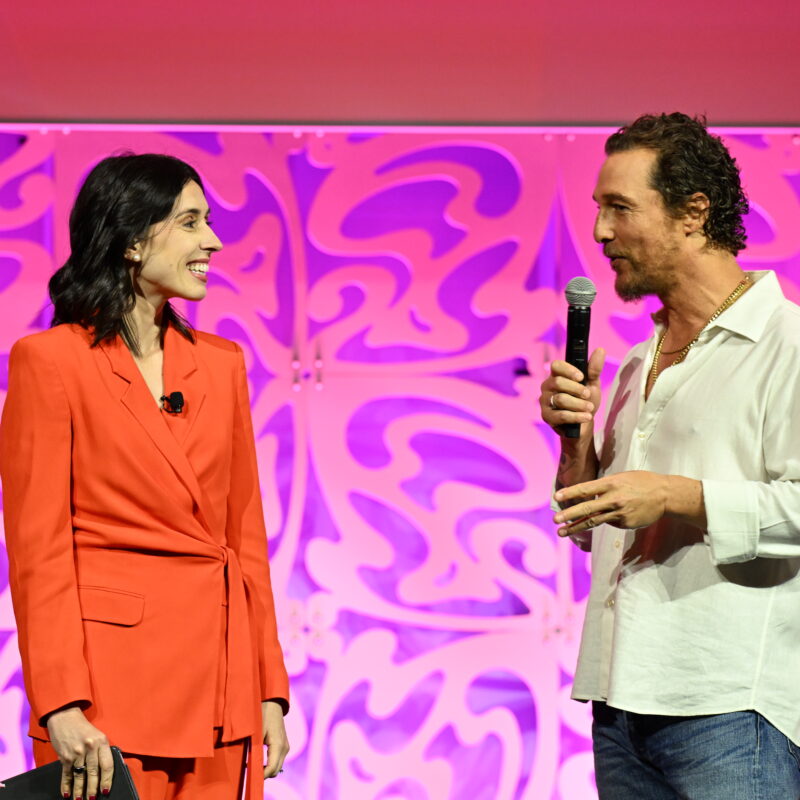
What a year it’s been—can you believe we’re almost at the end of another year?
For me, 2024 has been a year of exploration, connection, and the sheer privilege of learning from some of the brightest minds across industries, disciplines, and continents.
Looking back, I’ve had so many “pinch-me” moments—sitting down with some of the world’s most respected leaders, diving into meaningful conversations with authors, athletes, and change-makers, and gaining insights that have truly shaped my thinking. It’s been nothing short of extraordinary, and I’m so grateful to be doing what I love.
As we close out the year, I want to share seven powerful nuggets of wisdom from seven unforgettable conversations. These gems have stayed with me, challenged my perspective, and, I hope, will inspire you as we look ahead to 2025.
Nugget 1: We Need To Learn to Disagree Without Getting Mad
From Former President Bill Clinton and Secretary of State, Hillary Clinton
This year, I had the privilege of sitting down with President Bill Clinton and Secretary Hillary Clinton at the Professional Convention Management Association (PCMA) conference. Among the many takeaways from our conversation, one piece of wisdom struck me as particularly timely: “We need to learn to disagree without getting mad.”
In a world that often feels increasingly polarised—be it politics, work dynamics, or even those spirited holiday dinner-table debates—it’s a critical skill we all need to work on: learning how to disagree constructively. Unfortunately, the trend seems to be moving in the opposite direction. Data shows that millions of people are choosing to relocate to places where they’re more likely to be surrounded by like-minded individuals, reinforcing existing beliefs and creating echo chambers.
So, how do we break this cycle and put the idea of constructive disagreement into practice?
Start with curiosity. Ask questions like:
- “Can you help me understand why you think that?”
- “What leads you to that conclusion?”
Focus on the idea, not the individual. Use calm, respectful tones and frame disagreements with “I” statements. For example, say, “I see it differently because…” instead of, “You’re wrong.”
And when emotions run high? Take a pause. Thoughtful responses are always better than emotional reactions.
Disagreements handled with care aren’t roadblocks—they’re opportunities for growth, understanding, and stronger relationships.
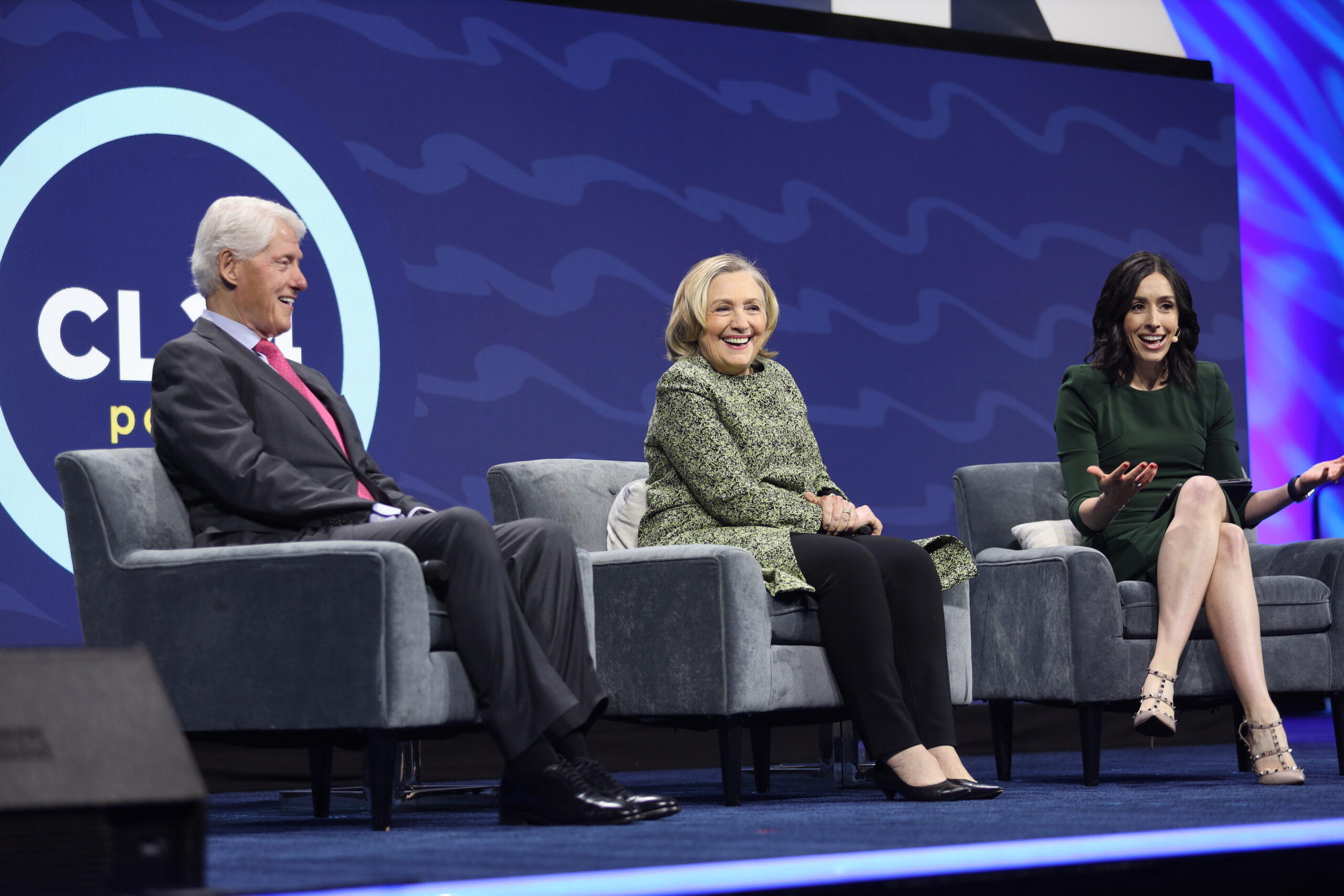
Nugget 2: How to Turn Imposter Syndrome into Fuel
From organisational psychologist and best-selling author Adam Grant
When Adam Grant and I sat down to discuss his latest book, Hidden Potential, earlier this year we tackled one of the most pervasive mindsets: imposter syndrome. Adam reframed it in a way I hadn’t heard before, describing it as the gap between how we see our capabilities and how others perceive us.
Instead of seeing imposter syndrome as a weakness, Adam encouraged us to use it as fuel. Research shows that imposter thoughts can push us to work harder, sharpen our skills, and improve our interpersonal connections. It’s not about denying self-doubt—it’s about harnessing it to bridge the gap between what we think we can do and what we’re truly capable of.
And if that self-doubt still lingers? Build yourself a “Challenge Network” (Adam describes it as finding your “Roy Kents” for you Ted Lasso fans)—those trusted people who tell it like it is and push you to be better.
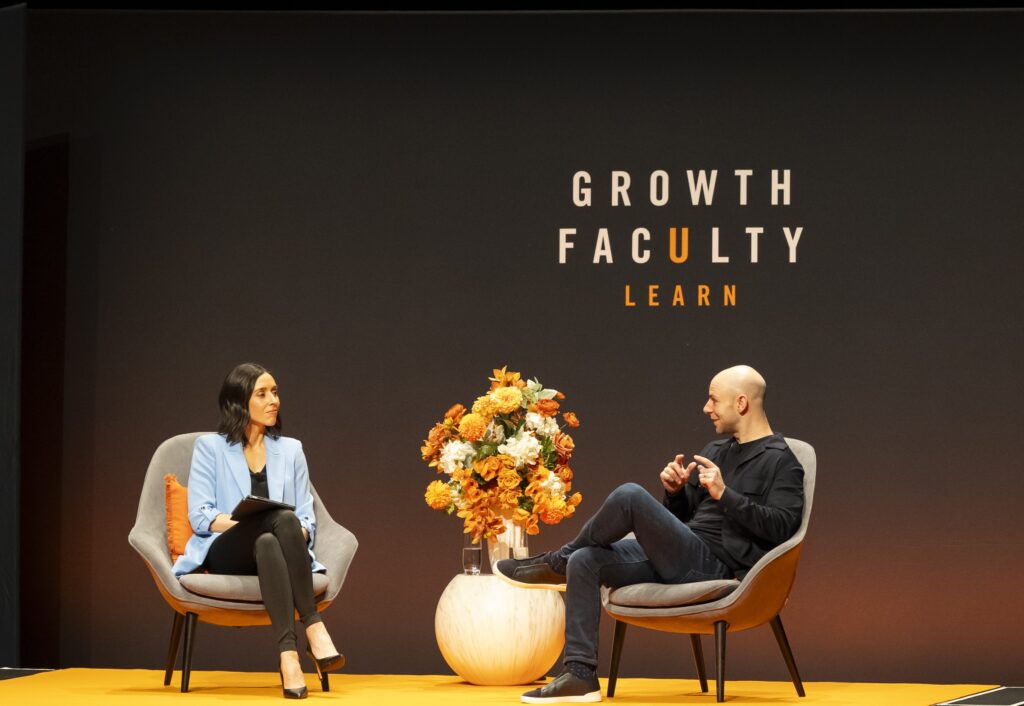
Nugget 3: Why We Need To Create a To-Don’t List
From best-selling author and productivity expert Daniel Pink
We all know the value of a to-do list, but Daniel Pink offered a new twist during our conversation at the Association for Talent Development (ATD) conference: the to-don’t list.
Productivity isn’t always about doing more—it’s about doing less of what doesn’t serve you.
Ask yourself:
- What’s cluttering your schedule?
- What’s draining your energy?
- What’s keeping you from meaningful work?
For example, your to-don’t list might include:
- Don’t check emails during deep work hours.
- Don’t schedule meetings during writing blocks.
Sometimes, subtraction is the key to getting more done. What would you put on your to-don’t list?
Nugget 4: Routines Are for Tough Days
From tennis legend Venus Williams
It’s hard to overstate what an honour it was to sit down with the iconic Venus Williams. One insight that stuck with me was her perspective on routines: “Routines are easy when you’re full of energy, but they’re essential on your worst days.”
Venus emphasised that the real power of routines lies in their ability to carry us through the tough times, giving us structure when motivation feels out of reach. Whether it’s a morning ritual, an exercise habit, or a way to wind down after work, having a process you can rely on—even when life gets messy— can be the difference between staying afloat and losing your footing. On tough days, leaning into the structure of your routine, even if it’s just one small action, enables the consistency that builds resilience and keeps you moving forward.
Do you have non-negotiable routines that help you on your toughest days?
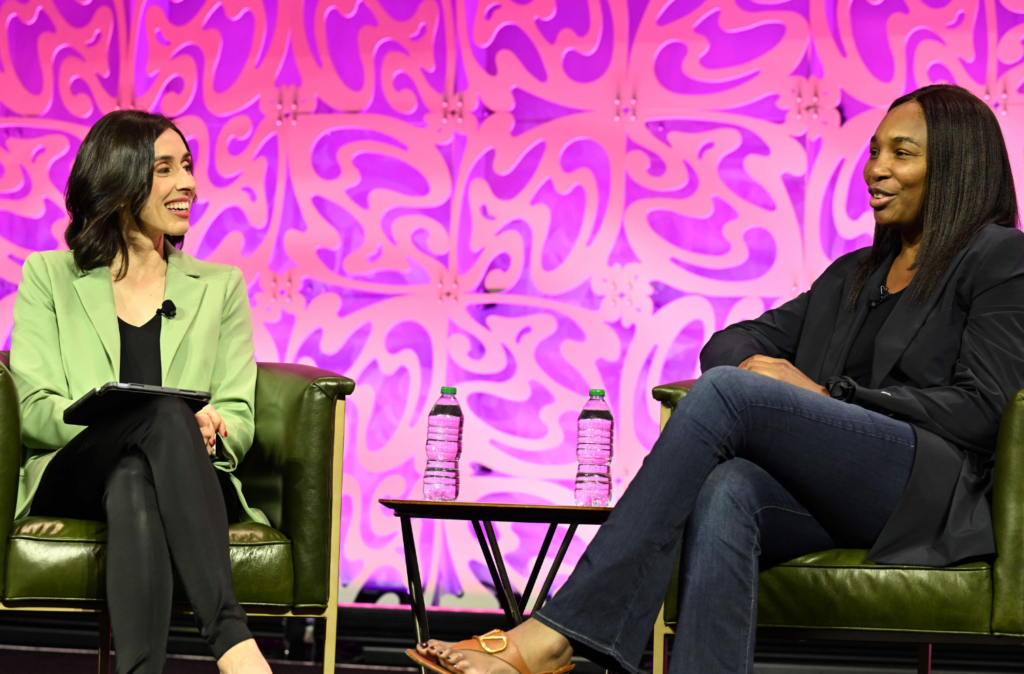
Nugget 5: Stories Shape Our World
From historian, philosopher and author Yuval Noah Harari
This year, I had the chance to sit down with Yuval Noah Harari—via hologram, no less—at Energy Disruptors. Among the many profound insights he shared, one idea left a lasting impression: “Human beings think in stories far more than numbers or graphs.”
Whether it’s in leadership, activism, or even day-to-day conversations, the stories we tell shape how we see the world—and how others see us. Yuval’s challenge was this: instead of critiquing other people’s stories, offer a better one. If we want to inspire change, we need to tell stories that resonate, inspire, and offer hope.
This idea struck a chord with me, especially as it ties back to some of the themes we explored in Nugget One. Instead of throwing stones—at other perspectives, opposing views, or even at ourselves—how do we challenge ourselves to lead with curiosity, humility, and a genuine willingness to hear others’ stories? And more importantly, how do we offer our own stories in a way that seeks to build bridges and foster a shared understanding, rather than deepen divides?
It’s not about winning or proving a point—it’s about connecting, learning, and ultimately shaping a narrative that moves us forward together.
Nugget 6: Optimism is Survival
From Academy Award-Winning actor and author Matthew McConaughey
When I had the pleasure of sitting down with Matthew McConaughey at this year’s Association for Talent Development (ATD) conference, he shared this memorable insight: “To be optimistic is to survive.”
Life doesn’t always go according to plan—when you don’t get what you want, how do you deal with the consequences instead? Matthew explained that optimism isn’t about blind positivity—it’s about adaptability. It’s finding the energy to move forward, even when the path looks different than you imagined. He also made the point that he deliberately looks for and reflects daily on reasons to be optimistic and always chooses the more optimistic story about a situation or challenge.
This mindset isn’t just about survival—it’s about thriving in the unexpected. Whether it’s a career setback or a personal challenge, optimism allows us to reframe obstacles as opportunities to grow and recalibrate. As we prepare to step into 2025, Matthew’s wisdom serves as a reminder that hope isn’t just a feel-good idea; it’s a tool for resilience.
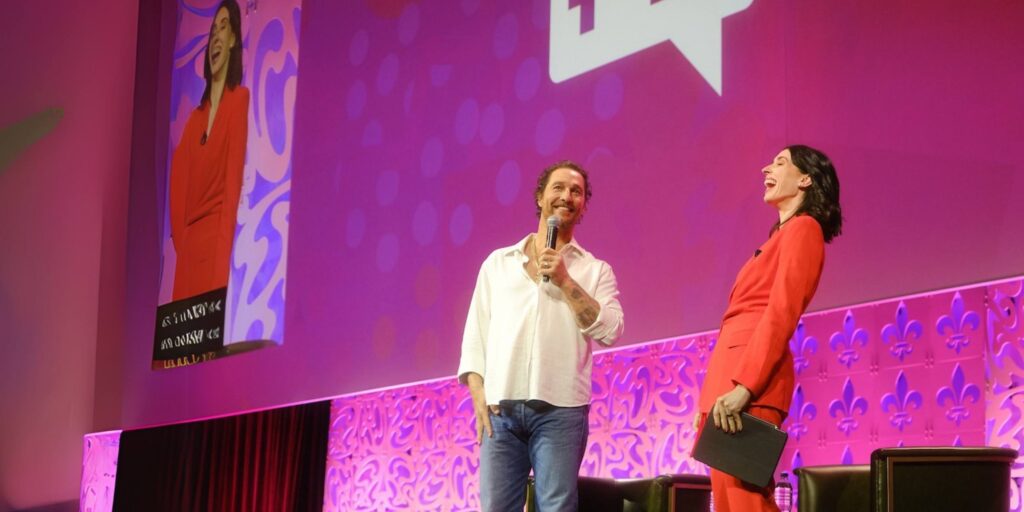
Nugget 7: How to Create Space for Vulnerability
From neuroscientist, actor and podcast host Mayim Bialik
Sitting down with Mayim Bialik (aka Amy Farrah Fowler from The Big Bang Theory) was a powerful reminder of what it takes to create safety for people to be vulnerable. On her podcast, Bialik Breakdown, she has built a platform where people from all walks of life feel comfortable opening up—and as she shared with me, it all starts with one critical skill: listening without judgment.
It sounds simple, right? In practice, it’s one of the hardest things to do. Truly listening, without jumping in to offer solutions or filtering what someone is saying through your own perspective, takes patience, empathy, and self-awareness.
And, when we do it well, something magical happens. We create a space where people feel heard, valued, and safe. This kind of intentional, empathetic listening deepens trust and strengthens connections—not just in our relationships with others, but in how we relate to ourselves.
So, how can you listen better today? What might change if you gave someone the gift of your full, judgment-free attention?
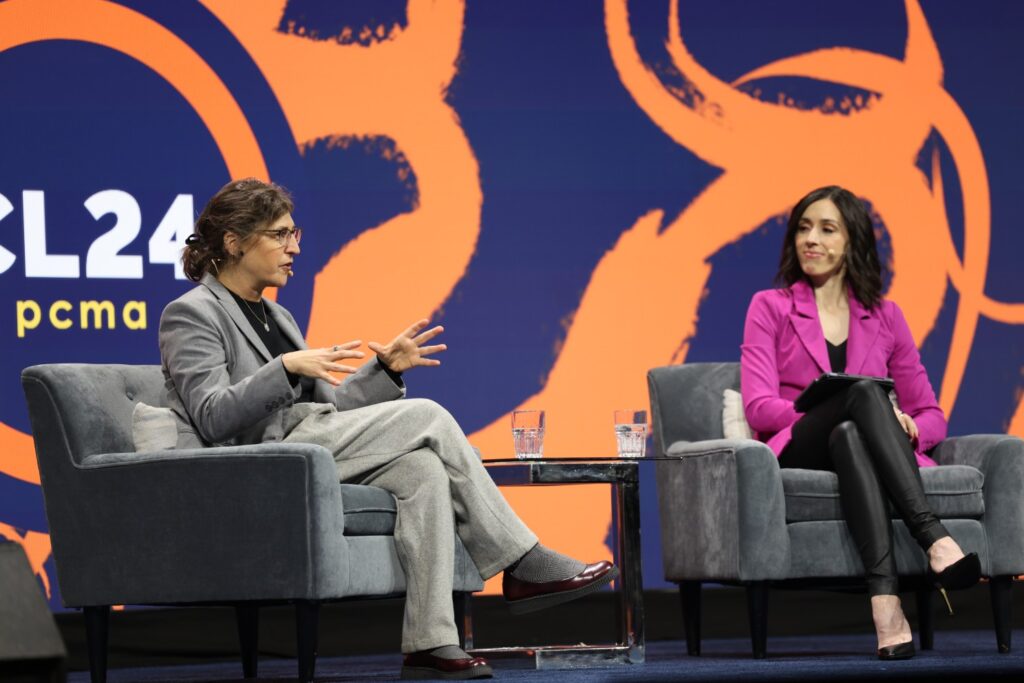
Looking Ahead to 2025
As I reflect on these conversations, I’m struck by the diversity of wisdom shared—from personal growth to leadership, productivity, and resilience.
Each of these nuggets reminds me that insight doesn’t just come from knowledge—it comes from connection, curiosity, and the willingness to learn from those around us.
So, as we move into 2025, I hope these lessons inspire you to pause, reflect, and carry a little extra wisdom into the new year.
Here’s to the lessons of 2024—and to the opportunities waiting in 2025!
Loved this article? Then you’ll love Love Mondays.
Join the Love Mondays community and receive a short and sweet leadership lesson and mini activation challenge in your inbox each week – the Monday morning kick in the pants you’ve been looking for!
